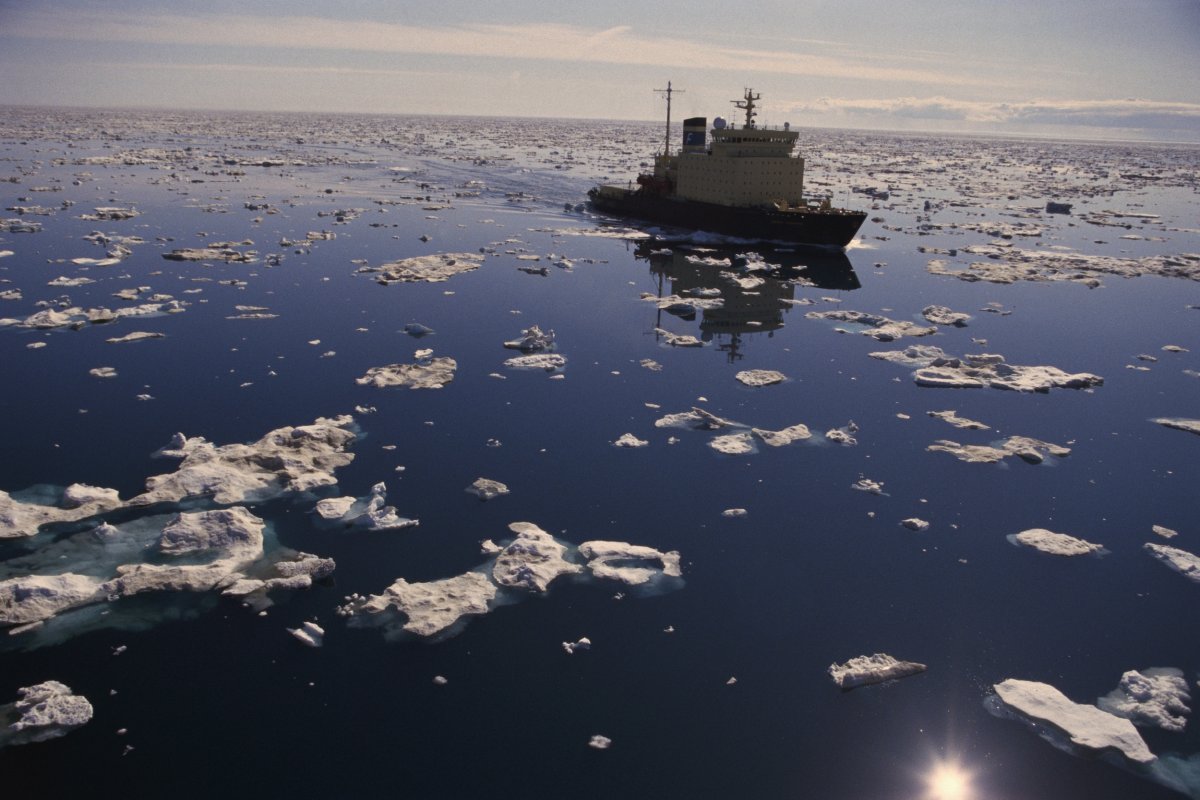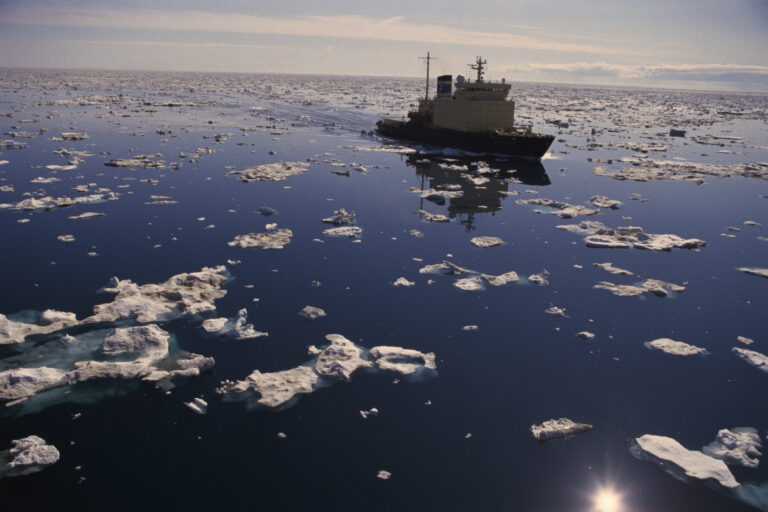With the return of the Trump administration, the concept of great power competition has seen something of a renaissance. To its credit, the view of China as a predatory global player that emerged during President Donald Trump’s first term in office was perpetuated by his successor, Joe Biden. Even so, recent months have seen strategic competition between the United States and China in everything from strategic minerals to trade expand to virtually every corner of the world.
But one place where real competition hasn’t yet kicked off in earnest is the Arctic. It’s certainly true that the Trump White House grasps the strategic importance of the region; during its first term in office, it reopened Arctic waters for drilling as part of a robust America First energy policy, and there’s now a broad understanding among administration officials that the area is one of vital national interest. Still, it’s fair to say that U.S. attention to the Arctic hasn’t kept pace with that of the People’s Republic of China (PRC).

Getty Images
Back in 2018, the government of Xi Jinping issued its official Arctic strategy. That document framed the PRC as a “Near-Arctic State” and outlined a broad vision for engagement and investment in the region. Since then, China has become a stakeholder in Russian Arctic projects like the Yamal LNG pipeline and a deep-water port in Arkhangelsk. It has made inroads among other Arctic states as well by establishing research facilities in Iceland and Norway’s Svalbard peninsula. Studies have estimated total Chinese investments in the Arctic to total in excess of $90 billion to date.
To what end is a hotly debated topic. A recent study by Harvard University’s Belfer Center has argued that those investments are decidedly more modest than advertised, and less significant than many assume. National security experts, though, warn that the PRC’s inroads are the prelude for an expanded, multi-domain strategy designed to make the Arctic a real domain of competition.
The stakes are massive because the region is strategically vital for a range of military, economic, and geopolitical reasons.
One is the Arctic’s growing significance as a maritime trade route. Melting ice and changing climate have opened up new and shorter shipping routes like the North Sea Passage (along Russia’s coast) and the Northwest Passage, through Canada’s Arctic territories. That has made the Arctic an increasingly important component of global commerce. Over the past decade, the Arctic Council estimates, the number of vessels transiting the area has increased by 37 percent.
Another stems from its strategic location. Situated at the center of the Northern Hemisphere, the Arctic is the shortest route between North America, Europe, and Asia. Another strategic competitor, Russia, has established numerous military bases and monitoring stations there, effectively militarizing the “High North.” In response, both the United States and NATO have steadily expanded their Arctic presence in recent years.
Yet another stake is energy potential. According to the U.S. Geological Survey, the Arctic holds some 90 billion barrels of oil, 1,669 trillion cubic feet of natural gas, and 44 billion barrels of natural gas liquids. That puts it roughly on par with Russia, in terms of energy wealth.
“What China is doing in the Arctic should be a wake-up call for us to accelerate the work we started,” Julia Nesheiwat told Newsweek. According to Nesheiwat, who served in the last Trump administration, first as U.S. Homeland Security advisor and then as commissioner on the U.S. Arctic Research Commission: “It is a major strategic challenge. We are seeing growing Chinese activity, and increasing collaboration between Russia and China, in an effort to gain access to Arctic resources and minerals.”
Nesheiwat suggested a series of concrete steps, from expanding the U.S. ice-breaker fleet to enhancing our Arctic diplomacy to stepped-up regional exercises with NATO partner nations. The job won’t be easy. The White House currently has an overflowing foreign policy plate, with issues ranging from Russia to the Israel-Hamas war. Nevertheless, Nesheiwat said we need to parlay our understanding of the importance of the Arctic into a real long-term vision for America there.
China, after all, clearly has one, and officials in Beijing are working toward making it a reality. If they succeed, it will have real consequence—not just for Arctic security, but for global commerce and economic prosperity more broadly.
Ilan Berman is senior vice president of the American Foreign Policy Council in Washington, D.C.
The views expressed in this article are the writer’s own.


